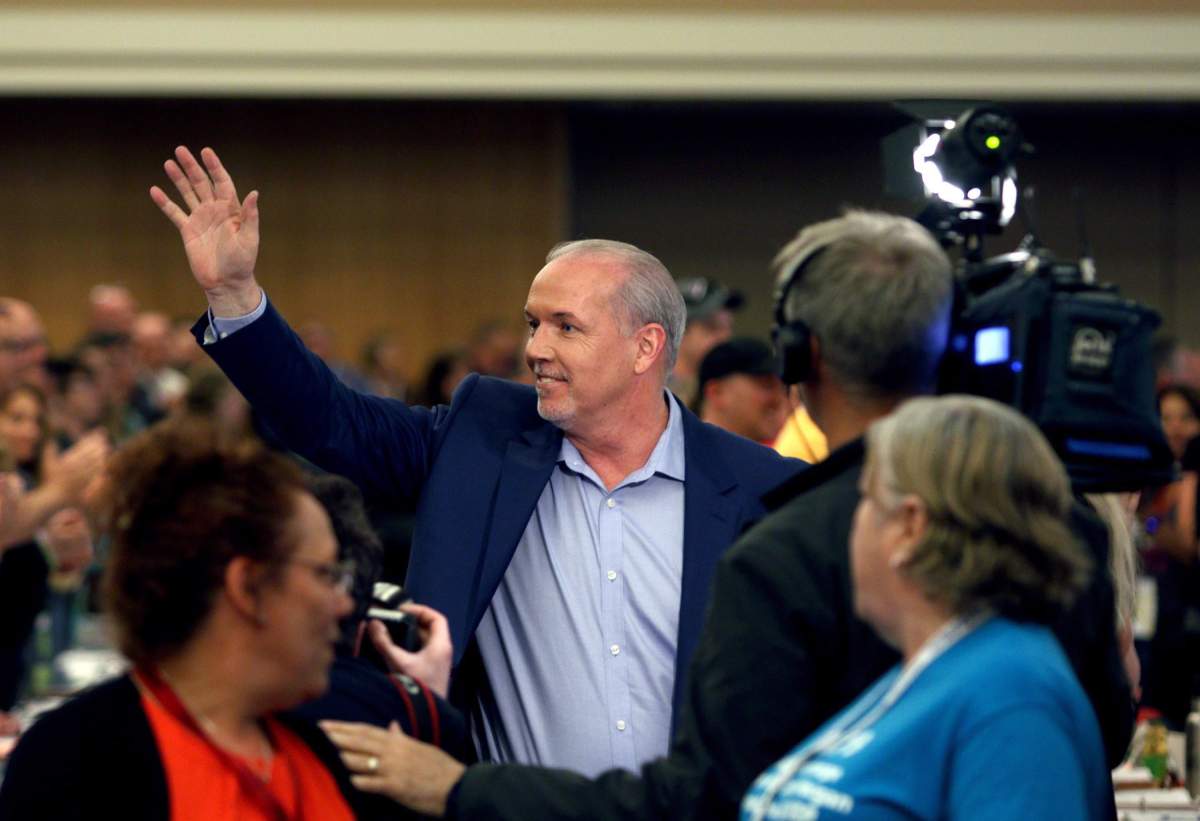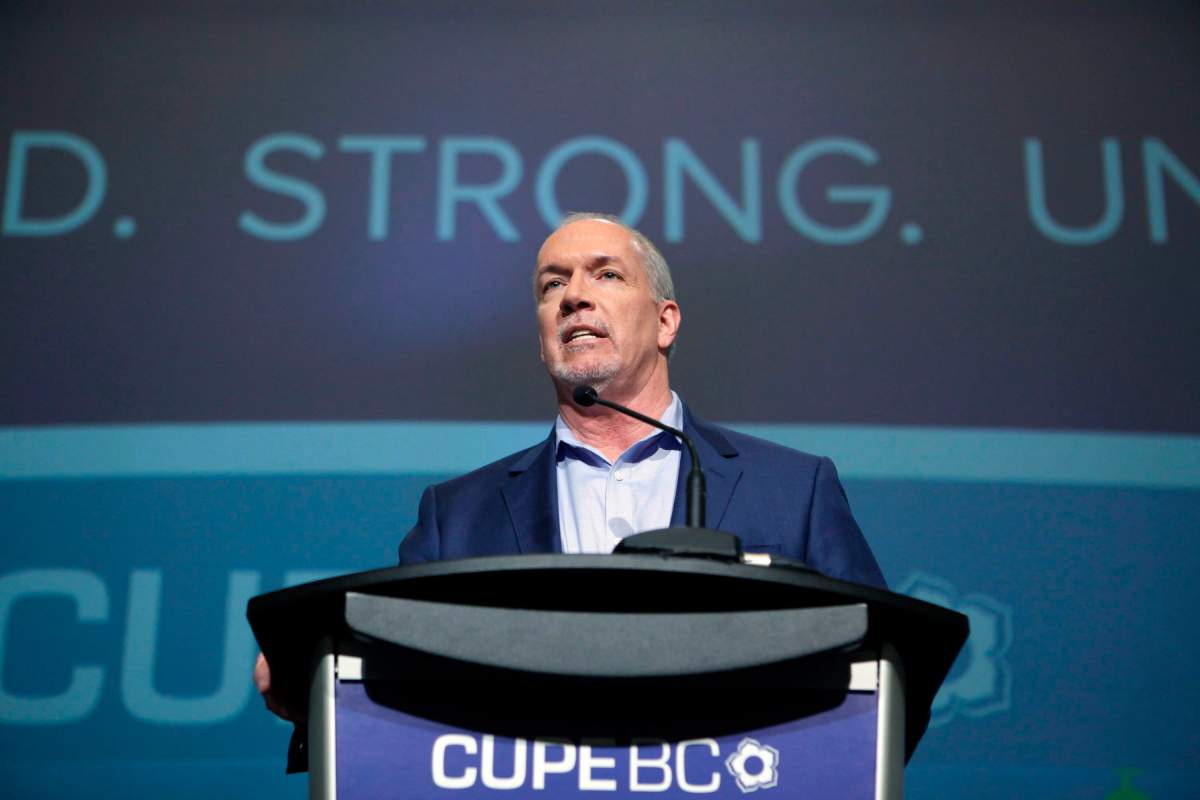Premier John Horgan was given a rousing welcome by delegates to the annual CUPE convention last week, but I have to wonder whether that’s going to be as good as it gets for the premier and his government when it comes to dealing with public sector unions.

That’s because the NDP government is about to open contract negotiations with those very unions. There are more than 310,000 unionized public employees in B.C. whose collective agreements (about 180 of them) expire next spring and there are another 75,000 managers in the public sector.
Everyone from teachers, college faculty, health care workers and school custodians to doctors and nurses will be at the bargaining table in the coming months.
Coverage of B.C. teachers and their union on Globalnews.ca:
There is no question that public sector union leadership and the membership will be looking for substantially more money at the negotiating table than they received from a series of BC Liberal administrations in recent years.
The frugal Liberals were loath to part ways with much money for wage hikes, establishing a “net zero” bargaining mandate in 2010 that stipulated there could be no increase in compensation unless savings were found to pay for it.

Get breaking National news
The “cooperative gains” mandate followed in 2012 and it allowed modest wage hikes that were again tied to found savings. Then, in 2014, came the “economic stability” mandate that allowed a maximum of 5.5 per cent in total wage hikes over five years plus a small economic “dividend” tied to an improving economy.
READ MORE: BC Teachers’ Federation consulting members ahead of negotiations with government
In other words, the BC Liberals engaged in some fairly miserly wage restraint practices for almost a decade.
Enter the NDP into government, and the expectations from the public sector unions are understandably pretty high that the days of wage restraint are over.
There’s just one problem: there is not a lot of money in the public treasury to fund significant wage hikes for those public sector employees.
Already, financial compensation costs consume 56 per cent of the entire provincial budget. That works out to about $26.7 billion ($22 billion of that is for unionized workers).
Of those costs, health takes up almost half the total, followed by education at 18 per cent.
A rule of thumb in the finance ministry is that a tiny one-per-cent wage hike across the public sector costs the government close to $300 million. A two-per-cent bump costs $600 million, and so on.
Keep in mind that any increase in compensation becomes “embedded” in the annual budget. A $300-million cost increase remains in there forever, and becomes a part of the total compensation costs going forward.
So, let’s say the unions come looking for an annual two-per-cent hike over three or four years. Sounds reasonable enough unless, perhaps, you are the employer.
That kind of seemingly modest compensation package would cost the government nearly $3.6 billion over three years (again, the first $600 million increase becomes embedded and is counted again in years two and three, as does year two’s $600 million in year three).
Finance Minister Carole James does not have a lot of flexibility at her disposal, and already she is pleading for everyone to “manage” their expectations of what will flow from the negotiating table.
Over the next two years, her fiscal plan shows she has $2.6 billion in unallocated spending. Presumably, the budget three years from now will have the usual $1.3 billion in unallocated spending, which brings the total to $3.9 billion.
That modest scenario of the two per cent annual increase would consume almost all of that money, leaving little to fund new programs and services (to say nothing of the huge costs incurred by another aggressive wildfire season).
So if James remains committed to delivering balanced budgets — and there is every sign that she is — she is likely going to hold the line at lower wage hikes, which may infuriate public sector workers.
And that’s why the premier may not enjoy that prolonged standing ovation when he attends those union conferences next year. He won’t be booed, but by then the relationship between his party and its staunchest allies will likely have become decidedly strained.
Keith Baldrey is chief political reporter for Global BC













Comments
Want to discuss? Please read our Commenting Policy first.